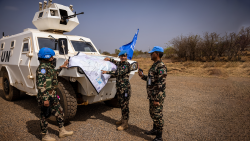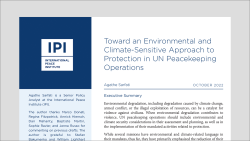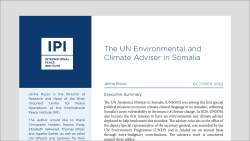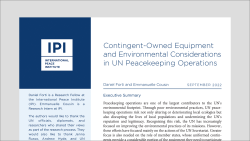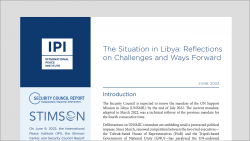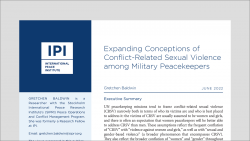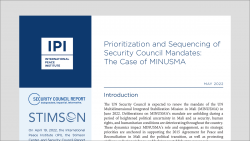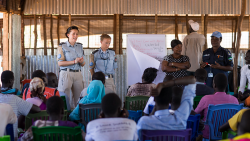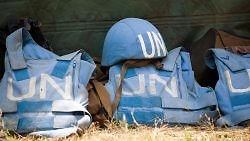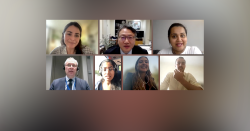
On October 26th, IPI in partnership with the Permanent Mission of the Republic of Korea to the UN and the Government of Finland, and in collaboration with the Office of the Secretary-General’s Envoy on Youth, cohosted a policy forum entitled “Youth Leaders on Peace and Climate Action: Priorities for COP27.”From the Fridays for Future movement […]
Read more